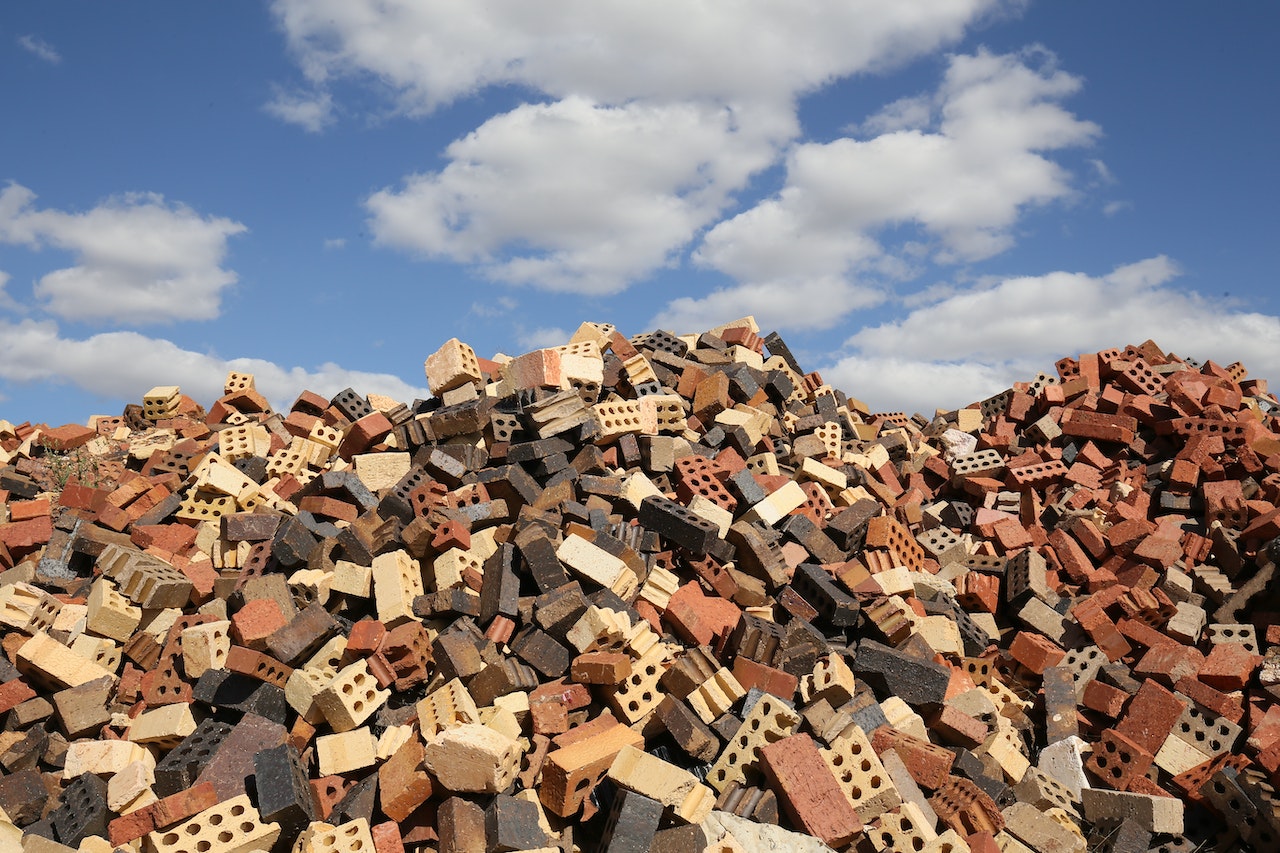How Much Does it Cost to Demolish Extensions?
Knocking through an old extension or replacing a tired conservatory can work wonders for your living space and enable you to expand your garden or build something new! The average cost to demolish extension spaces is around £80 to £115 per square metre, depending on several variables.
Enquire Today for Free, No-Obligation Extension Demolition Estimates! Our network of local demolition contractors provides quick, reliable quotes to help you budget for the cost of your extension demolition - for free! Fill out the form below to get started.
We'll explain which factors affect your extension demolition budget and run through some pointers on what to expect when you compare your quotes.
Average Cost to Demolish Extensions in the UK
The biggest factor in your quotations will be the size of your extension and the materials it is built from. For example, a simple conservatory without lots of brickwork will be much faster to dismantle than a two-storey rear extension.
As a rough guide, we've included cost ranges below based on the square footage of the entire structure you'd like to knock down.
| Extension Size | Demolition Cost | Average Price |
| 20 square metres | £1,600 - £2,300 | £1,950 |
| 30 square metres | £2,400 - £3,450 | £2,925 |
| 50 square metres | £4,000 - £5,750 | £4,875 |
| 80 square metres | £6,400 - £9,200 | £7,800 |
| 120 square metres | £9,600 - £13,800 | £11,700 |
Very small extensions or those built with panels rather than brickwork are cheaper to demolish - if you have a basic extension, you might pay between £500 and £2,500, including labour, waste removal and skip hire fees.
If you aren't sure what your extension is built from or if it was pre-existing when you bought your home, you can always arrange for a local demolition expert to visit the property at a convenient time to provide further advice.
Checkout this video showing what's involved in demolishing an extension:
Get demolition quotes
See how we work below.
Factors in the Cost to Demolish an Extension
As we've mentioned, there are all sorts of contributing aspects of your demolition project that will feed into the price.
Next, we'll look at some of the considerations which may help you understand the questions a contractor will ask before they can provide a detailed quotation breakdown.
Extension Size
Of course, the larger the extension, the more it will cost to demolish. That is not just in terms of labour hours but in the volume of waste to be disposed of, the complexity of the work, and the number of skips (or size of one skip) with capacity for all materials.
Simple extensions may have one layer of bricks, whereas large extensions that form interior rooms may have fully insulated external walls, which makes the job a little more delicate.
For example, if you have a double or triple-height extension, your contractor may need to price in scaffolding hire, demolition equipment and potentially hire an electrician or plumber to disconnect any utilities cabled through the walls.
Location
If you live in a built-up urban area or a remote location, you may need to pay additional costs for travel time, congestion charges, parking permits or licences to store a skip on the street during your demolition.
It is worth having a contractor visit beforehand if there are any access restrictions, such as a side return extension demolition without the space for heavy equipment or vehicles.
Homeowners in London and the southeast also pay around 10% more in contractor charges due to the higher costs of trading in this part of the UK.
Extension Materials
We've touched on the different types of extensions, which will be an element of your budget. PVC conservatories are considerably simpler to dismantle because the frame isn't typically connected to your external walls in a way that will require brickwork repairs or replastering.
If your property was built before the 1990s, it might also contain hazardous materials such as asbestos, which requires special handling, removal and disposal.
Some contractors are specialists in dealing with asbestos, although the associated charges for demolishing an extension with an asbestos roof, panelling or gutters will inevitably be higher.
Reasons to Demolish an Extension
There are countless reasons you might decide that you wish to knock through an extension. Some of the typical examples include:
- Unattractive extensions (often built around the 1970s) constructed from different materials and brickwork than the rest of your property.
- Upgrading an uninsulated, unwired extension into a fully wired extension to use as a larger living space, kitchen or home office.
- Replacing a leaky flat roof with a pitched extension.
- Raising the height of a single-storey extension to a full height extension.
Many older extensions were built purely for functionality, usually as a utility room or spare bathroom, and lack the features we expect from a modern, bright, airy extension to improve the quality and value of our home.
The majority of extensions from around 30 - 50 years ago were also built according to very limited building standards, so they can be structurally unsafe or require replacing as the brickwork and supports begin to deteriorate.
A poorly built extension can cause dampness, draughts, heat loss and water ingress. Knocking through and rebuilding or replacing the extension with a more contemporary structure is often more economical.
Extension Demolition Methods
The method your contractor uses to demolish your extension will depend largely on the nature of the structure and how high the extension is.
Most extension demolitions involve a manual process, stripping out the internal materials, disconnecting utilities, and then working from the roof downwards to remove one layer at a time.
However, if you have a large extension, your contractor may need to use commercial equipment such as a wrecking ball. If the extension rises to the height of the original house, you will also need to budget for scaffolding.
Some materials can hold value and may be retained to use on your new extension or be sold as salvageable items. Examples include things like bricks, roof tiles and slates.
If you believe that some of the materials in your extension demolition are worth holding onto or selling, you can discuss this with your contractor. They might handle the resale and reduce the final cost accordingly or recommend a local builder's reclamation yard that can arrange to collect unwanted building materials.
Other popular areas to compare the cost of demolishing extensions to are the costs associated with demolishing a garage as an alternative, whether its more cost effective to build over existing property or build from new, and how much it costs to dispose of waste materials after demolition.
Frequently Asked Questions
In the section below, we've answered some common questions about the cost of demolishing an extension and what this work involves.
Can I Knock Down an Extension Attached to My Home?
Yes, you can demolish an extension entirely, remove internal walls, expand the space, or knock through the adjoining wall between your extension and the rest of your property to create a bigger room.
A professional demolition contractor can run through some of the options, depending on what you're hoping to achieve by knocking down your extension!
Do I Need Planning Permission to Demolish an Extension?
It depends on the location of the extension, what it's built from, how long it has been in situ, the size, and whether it affects the outward appearance of your home.
If you live in a listed building or a conservation area, you will need permission to carry out any work on the property.
Extensions above 115 cubic metres will require full planning permission - it is worth verifying with your local planning office in any case since requirements vary, and demolishing an extension without the right consent could be very costly.
You may also require a Building Notice before your extension work can begin; this is a separate process from planning permission and ensures you will receive a completion certificate to confirm that the demolition work complies with Building Regulations.
What Happens If I Want to Demolish an Extension and Rebuild?
Older extensions can become tired or may not be in keeping with the rest of your home - you can demolish an existing extension and rebuild like-for-like in a different style or construct something completely different!
In most cases, an extension demolition and rebuild will fall under permitted development rights. Still, if the extension is at the front of your property, near a boundary with a neighbour, or close to a road, this may mean you need full planning permission.
Is It Cheaper to Demolish and Rebuild or Improve an Old Extension?
It depends on the condition of the extension structure and whether you would be happy with a modified appearance - or want to start again!
Please include this information on your enquiry form, and a contractor can provide quotes where possible to compare the cost of a demolition vs a demolition and rebuild project.
How Can I Get Reliable Quotes to Demolish My Extension?
Complete our enquiry form below, and we'll put you in touch with up to four local demolition contractors who will provide an obligation-free price estimate to demolish your extension.
The more detail you can provide about the project, the better, as this makes it easier to offer an accurate price!
If you decide to proceed, a contractor will ask to organise a convenient time to visit. This process allows them to measure up the site, review the level of work required, and offer advice on the potential demolition methods best suited to your home.
References
- https://tradesmencosts.co.uk/demolition/
- https://www.mybuilder.com/pricing-guides/demolition-costs
- https://www.myjobquote.co.uk/costs/demolition


